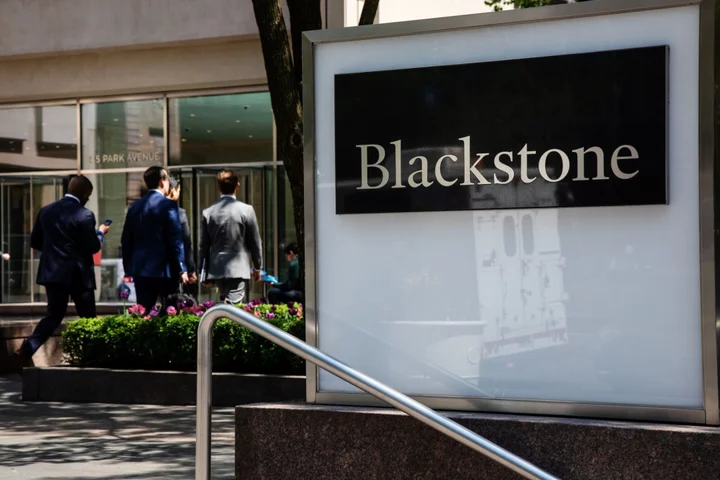Banks are reviving the sale of credit-linked notes, a type of synthetic securitization that’s been relatively uncommon in the US since the financial crisis, ahead of new rules that will require them to hold more regulatory capital.
The bonds are used by lenders to reduce the financial resources they have to retain against loans on their balance sheet. By including a credit default swap in the notes, the issuer can effectively transfer credit risk tied to a pool of loans — such as mortgages or auto debt — to investors tempted by yields of more than 10% in some cases.
The revival comes as banks wait to hear the latest terms of forthcoming Basel III regulations, under which they will have to retain more capital to cover losses if their liabilities soar. As a result, analysts at JPMorgan Chase & Co. see the mortgage-related CLN market alone growing to about $60 billion in the US in five years time, a 5,900% increase.
“With volatile interest rates and origination volumes, combined with increasing regulatory requirements, synthetic transactions are making more sense and are expected to pick up meaningfully in the near future,” said Chris Hentemann, chief investment officer and founder of hedge fund 400 Capital Management. The firm has been a buyer of European transactions, he said.
Magnetar Capital and Ares Management Corp. are also buying the bonds, which can yield anything from high single digits to mid-double digits, depending on the underlying collateral. KKR & Co. and Blackstone Inc. are active purchasers and ready to snap up more, according to people with knowledge of the matter. KKR and Blackstone declined to comment.
“From what we have seen, the number of capital relief trades that are coming out of this fourth quarter has only increased every week,” according to Joel Holsinger, co-head of alternative credit at Ares. The lender recently provided a significant risk transfer for a domestic bank on an aggregate portfolio exceeding $5 billion, he added, declining to name the bank.
Rising rates and increased risk weightings mean “it’s not easy to be a bank CEO right now,” Holsinger said. “It is a truly transformational moment.”
Read More: Private Credit Is Eyeing Bank Capital Risk Trades, Magnetar Says
CLNs, also known as significant risk transfers, fell out of favor in the US after the credit crunch, with the recovery rate on one Lehman-referenced note less than 9%, according to a research paper. While they remained a theoretical option for banks, the Federal Reserve has traditionally been conservative about what they consider to be a bond that transfers risk.
Last month, however, the central bank broadened the definition of capital relief via CLNs, while retaining the right to say no to a lender issuing them. Morgan Stanley last month got approval for a new issuance under the new guidance, according to a JPMorgan note this past week.
“The federal government is loosening up their view on these types of transactions with larger commercial banks,” said Ryan Dunfield, chief executive officer and principal of the SAF Group, an alternative asset manager based in Calgary, Canada. “They’re opening up a window to ensure US banks have very stable capital bases given where we are in the economic cycle.”
Week in Review
- The banking sector flooded the US high-grade primary market with fresh debt this past week, with the likes of Goldman Sachs Group Inc., JPMorgan Chase & Co. and Wells Fargo & Co. all bringing transactions.
- The creators of South Park are in discussions with Carlyle Group Inc. for a private loan totaling around $800 million to refinance an existing credit facility and fund a cash payout.
- A race to provide financing for the buyout of classifieds company Adevinta ASA shows that direct lenders are willing to slash their terms in order to win deals, even in a volatile market.
- Octagon Credit Investors is targeting a near-doubling of assets by exploring moves into private credit and expansion in Europe, according to its incoming chief executive Gretchen Lam.
- Blue Owl Capital Inc. is weighing an expansion into Europe through a potential acquisition of rival lender Hayfin Capital Management.
- A group of banks led by Morgan Stanley sold a $2.4 billion loan for Thoma Bravo-backed Qlik Technologies Inc.
- Johnson & Johnson said it’s weighing a third attempt to use bankruptcy for an $8.9 billion settlement of lawsuits that allege tainted talc in the company’s baby powder caused cancer.
- US corporate debt markets are showing early signs of weakening as rising yields and falling equities take their toll.
- Leveraged loans are poised for the best returns in 14 years, even as the ongoing rout undermines bonds.
- Achim Wiechert, head of external funding at insurance giant Allianz SE, is lobbying for one of the most far-reaching overhauls to Europe’s $235 billion market for additional tier 1 bank debt.
- Oak Hill Advisors raised $2.3 billion of equity commitments for the third vintage of its flagship distressed investment fund.
- Fidelity International has launched its first private lending fund with a loan to a Dutch dental services company.
- Thames Water drew in bumper investor orders by paying a high premium for a new bond, the first such offering by a British water company since an industry blow up earlier this year exposed massive debt piles.
On the Move
- Keyur Vyas has left Barclays Plc for a job at Loomis Sayles & Co., where he’ll be responsible for developing research, investment strategies and relative value recommendations in CLOs.
- Societe Generale SA corporate bond syndicate banker Ronan Murphy is leaving the bank. He climbed Mount Everest in May 2021.
- Nicola Wealth Management Ltd. tapped Robert Olsen as vice chair of its private capital team as the Canadian firm tries to build up a larger business in alternative assets.
--With assistance from Dan Wilchins.
Author: Carmen Arroyo, Paula Sambo and Paula Seligson

